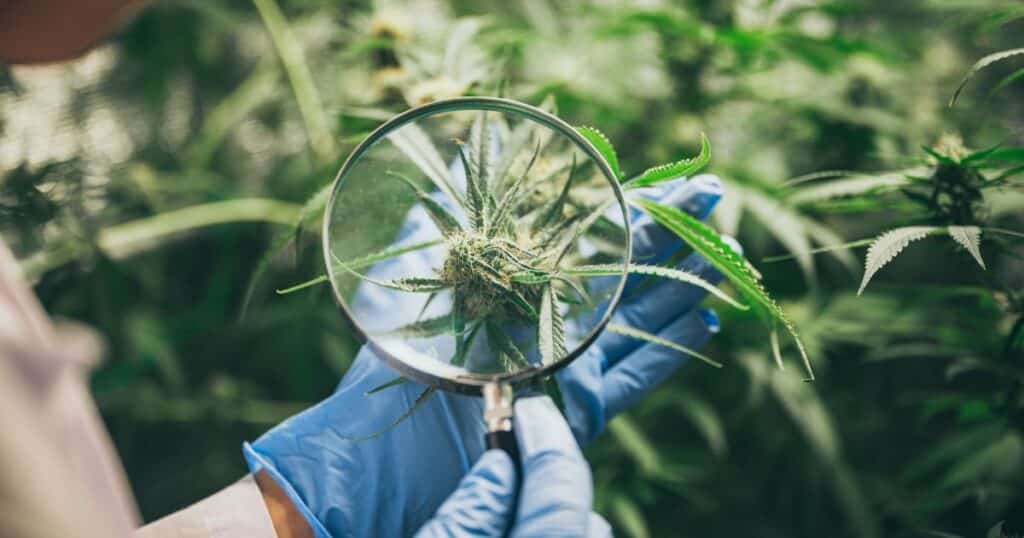According to a recent report from NORML, there has been a significant increase in the number of published papers on cannabis research over the past decade. This analysis, based on keyword searches on the federal National Library of Medicine website PubMed.gov, challenges claims that cannabis is insufficiently studied and, therefore, should not be legalized.
As we continue to see more states legalize marijuana for both medicinal and recreational purposes, it is crucial to base policy decisions on facts rather than outdated stereotypes. The NORML report highlights the growing body of evidence surrounding cannabis and its constituents, providing a strong foundation for fact-based decision-making.
🌿 "It is time for politicians and others to stop assessing cannabis through the lens of 'what we don’t know' & instead start engaging in evidence-based discussions about marijuana and marijuana reform policies that are indicative of all that we do know." https://t.co/RR8MZsaEsP
— NORML (@NORML) December 19, 2023
Over the past decade, there has been a noticeable increase in scientific inquiries about the cannabis plant. With more states legalizing marijuana for medical purposes, researchers have become increasingly interested in studying its therapeutic activities. This has also led to a rise in studies examining the real-world effects of legalization laws on public health, crime rates, and social justice issues.
The growing body of knowledge on cannabis has also had a significant impact on understanding its various constituents and their potential benefits. This includes not only tetrahydrocannabinol (THC) and cannabidiol (CBD) but also minor cannabinoids such as cannabigerol (CBG) and cannabinol (CBN). As we learn more about these compounds and their potential therapeutic properties, it becomes increasingly clear that there is much to gain from further cannabis research.
Current State of Marijuana Research
Despite the growing body of scientific literature on cannabis, opponents of legalization often argue that there is not enough evidence to support its medicinal use. However, as the NORML report details, there have been over 30,000 published papers on cannabis in the past decade alone, providing a wealth of information for policymakers to draw upon.
“Despite claims by some that marijuana has yet to be subject to adequate scientific scrutiny, scientists’ interest in studying cannabis has increased exponentially in recent years, as has our understanding of the plant, its active constituents, their mechanisms of action, and their effects on both the user and upon society,” NORML’s Deputy Director Paul Armentano said. “It is time for politicians and others to stop assessing cannabis through the lens of ‘what we don’t know’ and instead start engaging in evidence-based discussions about marijuana and marijuana reform policies that are indicative of all that we do know.”
When compared to other substances, such as alcohol and tobacco, the amount of research on cannabis is still relatively small. However, this can be attributed to its Schedule I classification under federal law, which means it is considered to have a high potential for abuse and no accepted medical use, making it difficult for researchers to obtain funding and conduct studies. Despite these barriers, the existing literature on cannabis is extensive and continues to grow.
The federal government’s research priorities have been heavily focused on the potential negative effects of marijuana rather than its potential therapeutic benefits. This has led to a lack of funding for research on medical cannabis and a potential bias against studying its potential benefits.
However, as more states legalize marijuana and public opinion shifts towards accepting its use, there is hope for increased federal funding and a more balanced approach to cannabis research.
One way to address the barriers to studying medical cannabis is through legislative efforts to streamline the research process and potentially reclassify it under federal law. This would allow for easier access to funding and resources, making it easier for researchers to conduct studies on the potential benefits of marijuana.
Currently, there are several bills in Congress aimed at facilitating more research on medical cannabis. In 2022, the Medical Marijuana Research Act passed the House of Representatives, which aims to establish a new, separate registration process to facilitate medical marijuana research. Specifically, it directs the Drug Enforcement Administration to register practitioners to conduct medical cannabis research and manufacturers and distributors to supply marijuana for such research.
Additionally, there is a growing push to reclassify marijuana under federal law, potentially moving it from a Schedule I to a Schedule III substance. This would acknowledge its accepted medical use and open up more opportunities for research.
While these efforts are still ongoing, they demonstrate a growing recognition of the need for increased research on medical cannabis and the potential benefits it may offer.

Overall, the NORML report detailing over 30,000 published papers on medical cannabis in the past decade is a testament to the abundance of evidence supporting its use as a medicine. Despite this, politicians and opponents of legalization have continued to claim that there is not enough cannabis research to support reform.
It is clear that this argument does not hold up against the extensive scientific literature on cannabis and its proven therapeutic benefits. As legislative efforts continue to streamline research and potentially reclassify marijuana, we can only imagine the potential for further discoveries on how this plant can benefit our health and well-being.
It is time for fact-based decision-making to prevail over outdated reefer madness claims from decades ago. The future of medical cannabis looks promising, and it is up to policymakers to embrace this evidence and make informed decisions for the benefit of their constituents. So, let’s leave behind the misinformation and move forward in a new era of understanding and acceptance of cannabis. The potential benefits are endless; it is time to unlock its full potential.
Keep updated on all the latest news and updates in the Cannabis industry here at Beard Bros Pharms by signing up for our Friday Sesh Newsletter here. Always Dank and Never Spam!





















